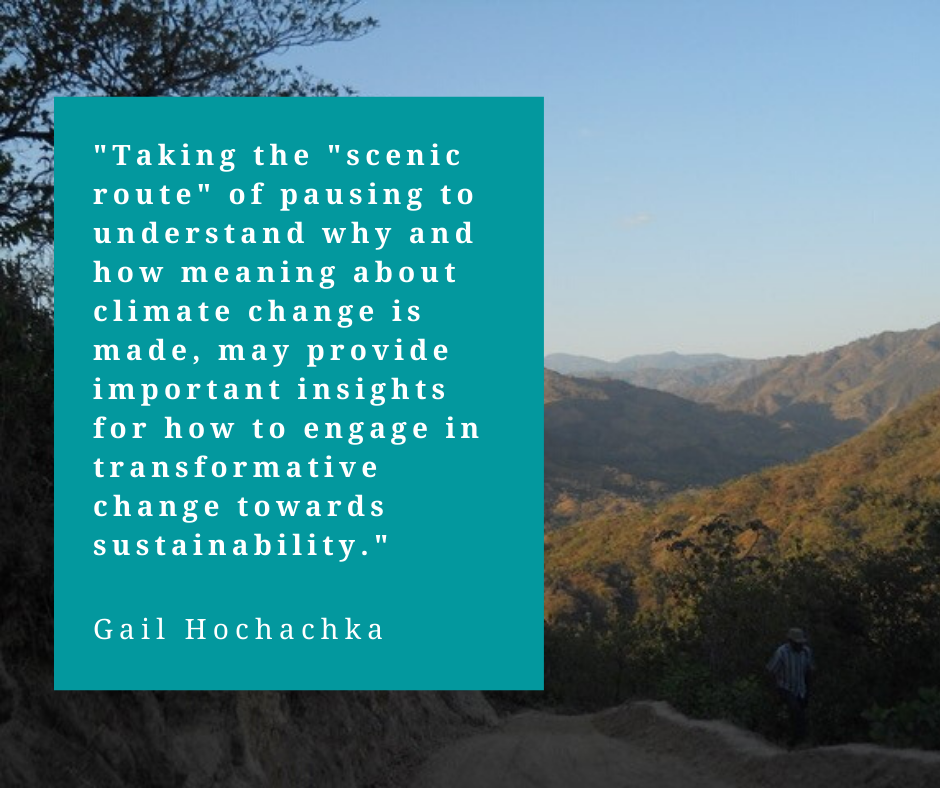Studies exist on ‘what’ people believe about climate change, but the insights from developmental psychology help to explain ‘why’ meaning is organized as it is. Explaining what meanings are held is akin to the shortest distance between two points, but considering why meaning was construed as such is the scenic route. In this article Gail Hochachka argue that ‘taking the scenic route’ to consider the perspective-taking processes that produce such a spectrum of views on climate change introduces a critical factor into the climate change dialogue, and may help deepen and clarify certain aspects of transformation.
Citation
Hochachka, Gail (2020). The Scenic Route: A Developmental Approach Emphasizes the Importance of Human Interiority in Transformative Approaches to Climate Change. Integral Review, Vol. 16, No. 1. April 2020.
Abstract
What is effective climate change adaptation, at a time in history where the call for transformative change is on the increase? This article considers how to expand and deepen the largely techno-managerial concept of adaptation, often framed as that of reacting to and accommodating climate change, by integrating human interiority in a more balanced way. While the psychological and social dimensions of the climate change issue have been studied, they are less equally weighted alongside the climate science; some studies suggest that improving the integration of psycho-social change processes will be important for effective adaptation and may bode helpful in enacting transformative change. In this article, I explain my rationale and methods for including the lesser-known discipline of adult developmental psychology to examine how people make meaning of climate change, which may have important implications for adaptation policy and practice. Studies exist on ‘what’ people believe about climate change, but the insights from developmental psychology help to explain ‘why’ meaning is organized as it is. Explaining what understandings people hold is akin to the shortest distance between two points, but considering why meaning was construed as such is the scenic route. I argue that ‘taking the scenic route’ to consider the perspective-taking processes that produce such a spectrum of views on climate change may hold potential for a more comprehensive response to such a complex issue, not only to grasp why these meanings differ so vastly, but also to support improved collaboration and to help engage in adaptation as transformation.
Access the article here.
